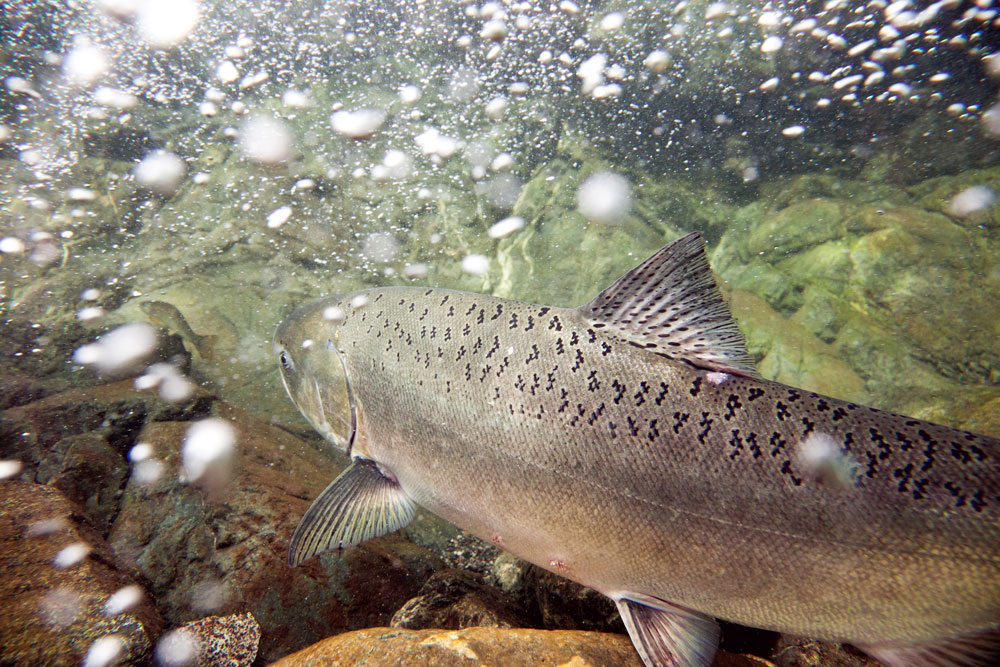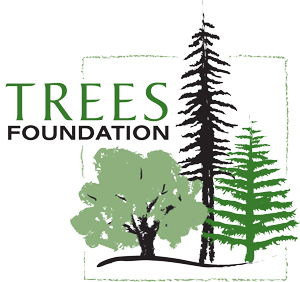Virtual Spring-run Chinook Symposium on July 23-24

By Salmonid Restoration Federation
Salmon River Restoration Council and Salmonid Restoration Federation are hosting the 10th Spring-run Chinook symposium virtually on Thursday, July 23, 2020 and Friday, July 24, 2020. Sessions on both days will take place from 12:30-4pm. This is a truly collaborative educational event with diverse partners including the Karuk Tribe, and the U.S. Forest Service.
SRF is excited to join our partners from the Salmon River watershed, which is the center of community-based Spring-run Chinook recovery and restoration efforts in the Klamath Basin. Nestled in a beautiful river canyon, the Salmon River is fed by snowmelt from the Trinity Alps and Marble Mountains and is the second largest tributary flowing into the Klamath River. Salmon River Restoration Council (SRRC) has been a leader in Spring-run Chinook (aka springers) recovery efforts and has co-hosted the annual cooperative dives to count springers in the Salmon River since 1995. SRRC’s mission is to protect and restore the Salmon River watershed, and especially its anadromous fisheries, with the active participation of the local community.
Due to COVID-19 precautions, this year’s symposium will take place entirely online. While we are sad to not be able to gather in person, we hope this event will be more accessible to our constituents who might not have been able to join us in our typical remote location.
Thursday’s session will include a joint keynote address by Ron Reed, a Karuk tribal member and activist, and Dr. Kari Norgaard, a professor of sociology at the University of Oregon. The keynote will be followed by an exciting session called Spring Chinook: Historical and Cultural Knowledge with two speakers. Charley Reed, a Humboldt State University student and Karuk tribal member, will give a talk on “Differentiation of Spring- and Fall-run Chinook in the Klamath-Trinity Watershed from an Indigenous Perspective,” and John Hamilton will describe “Spring-run Chinook Survey Trends for the Klamath Basin Downstream of Iron Gate Dam.” The final talks of the afternoon will address the current status and trends of Spring-run Chinook, with Eli Asarian of Riverbend Sciences and Karuna Greenberg of the Salmon River Restoration Council.
Friday’s sessions will focus on the future for Spring-run Chinook, with talks that address habitat restoration, as well as genetics and reintroduction. The Habitat Restoration session will focus on implementing recovery strategies for Spring-run Chinook including innovative floodplain and mine tailing remediation projects; the Yurok Tribe’s heliwood projects on the South Fork Trinity; and an instream restoration project on the North Fork Salmon River. The Genetics and Reintroductions session will address the reintroduction of Spring-run Chinook into tributaries of Upper Klamath Lake and a summary of the current state of the science regarding the genetic and evolutionary basis of spring run-timing in Chinook. The agenda will conclude with time for questions and farewells.
In 2018, the Karuk Tribe and Salmon River Restoration Council filed a petition to list Klamath-Trinity Spring Chinook under the California Endangered Species Act (CESA). On February 6, 2019, the California Fish and Game Commission made this species a candidate for listing under the CESA. A similar petition to list Klamath-Trinity Spring Chinook under the federal Endangered Species Act was found to present substantial scientific information and a full status review of Chinook in the Upper Klamath-Trinity basin is currently underway.
To see the full agenda and register for the symposium, please visit: www.calsalmon.org/programs/spring-run-chinook-symposia/10th-annual-spring-run-chinook-symposium
For those who miss the symposium, we will make a recording available on this same webpage.
For more info, visit www.calsalmon.org
